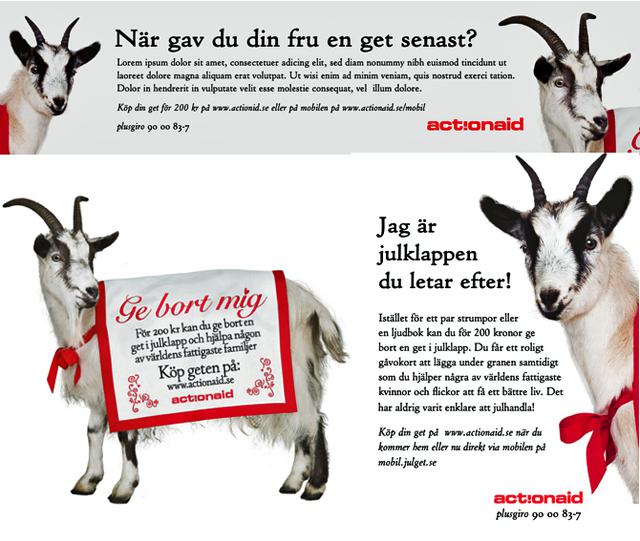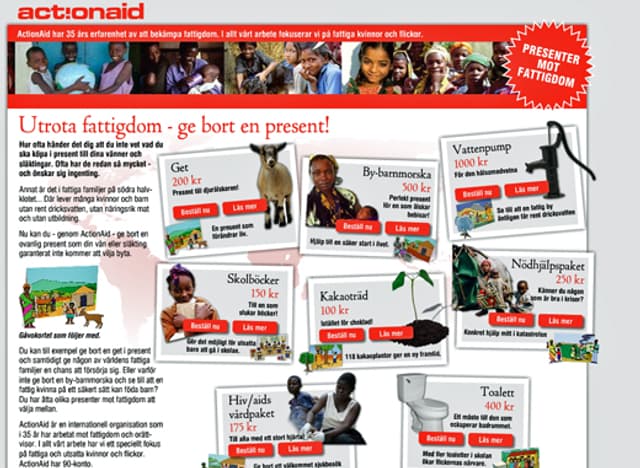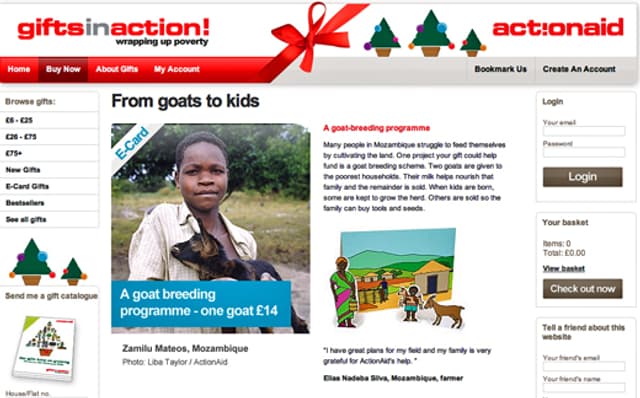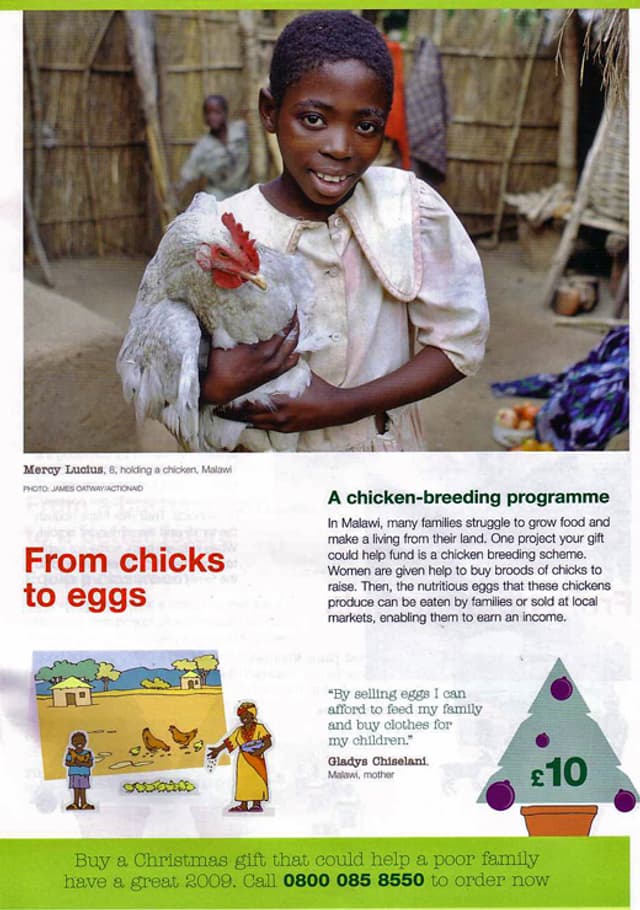ActionAid’s Christmas collection: virtual gifts that keep on giving
- Exhibited by
- Peter de Vena Franks, ActionAid
- Added
- August 31, 2009
- Medium of Communication
- Online.
- Target Audience
- Single gift.
- Type of Charity
- Children, youth and family, poverty/social justice.
- Country of Origin
- Sweden, UK.
- Date of first appearance
- November, 2006.
SOFII’s view
The concept of virtual gifts is not new. However ActionAid’s approach is noteworthy because they have elevated the process and are now offering their supporters gifts that keep on giving. Whether it’s a goat that gives milk, a chick that one day will lay eggs, or a seed that will grow into a livelihood, all of the colourful array of gifts in ActionAid’s Christmas catalogue keep on giving to the individuals, families and communities that receive them, so contribute to the organisation’s mission to fight poverty. And help make donors feel good.
Indeed the only person upset by this activity, it seems, is Father Christmas...
Creator
Amanda Santer, ActionAid, with help from agency Bluefrog
Summary / objectives
Like many fundraising organisations, ActionAid raises substantial additional funds for its work each year through a Christmas catalogue that it sends to all sponsors and other supporters. The gifts are positioned as examples of what a donor’s gift could go towards achieving - they are all based on real projects and real costs from the relevant countries.
Throughout the GIA materials and website we explain that monies generated via GIA will support a range of projects around the world, that the gifts are examples of how a donation might be used and that that we will spend the money where the need is greatest.
Background
The search for more appropriate products has led to constant refinement in what is offered to the public via the catalogue.
Special characteristics
ActionAid’s range of ‘gifts that keep on giving’ is wide and varied. Supporters can buy for their friends and family everything from a packet of emergency relief supplies to a box of books specially selected for schoolchildren in Africa, from a water pump or a teacher training pack to a toilet for girls or some new fishing nets. The most expensive gift on offer is the training of a midwife, at £411.00 (US$630 approx.). The cheapest is a new energy-saving stove, at £6.00 (US$9.25).
To accompany these virtual gifts high quality pop-out cards are offered, which when ordered online via ActionAid's website can allow for sound and interactive personalisation.

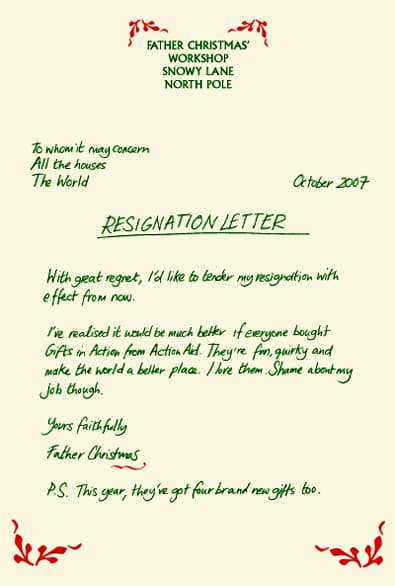
Results
ActionAid’s range of ‘gifts that keep on giving’ is wide and varied. Supporters can buy for their friends and family everything from a packet of emergency relief supplies to a box of books specially selected for schoolchildren in Africa, from a water pump or a teacher training pack to a toilet for girls or some new fishing nets. The most expensive gift on offer is the training of a midwife, at £411.00 (US$630 approx.). The cheapest is a new energy-saving stove, at £6.00 (US$9.25). To accompany these virtual gifts high quality pop-out cards are offered, which when ordered online via ActionAid's website can allow for sound and interactive personalisation.
Merits
This is a range of great ideas that will inspire donors and fundraisers alike.
Other relevant information
For more information on the growth of the virtual gifts market check out the post on Mark Phillips blog, Queer ideas.
The resignation letter, above, from a disgruntled Santa worried that gifts that keep on giving might eventually put him out of business, comes from ActionAid’s first promotion of their virtual gifts catalogue in 2007. SOFII thinks it unsurprising that he came round in the end. There are so many good gift ideas here with such a lot of supporter appeal that we’re sure Santa will be kept even busier than usual, distributing ActionAid’s gifts by the sleighload to wherever in the world they’ll do most good.Virtual gifts have very broad popular public appeal and so their recent emergence has revitalised the charity Christmas trading market. Even some of the biggest charities find they now get more hits on their gift micro websites than on their main sites. Virtual gifts are here to stay.
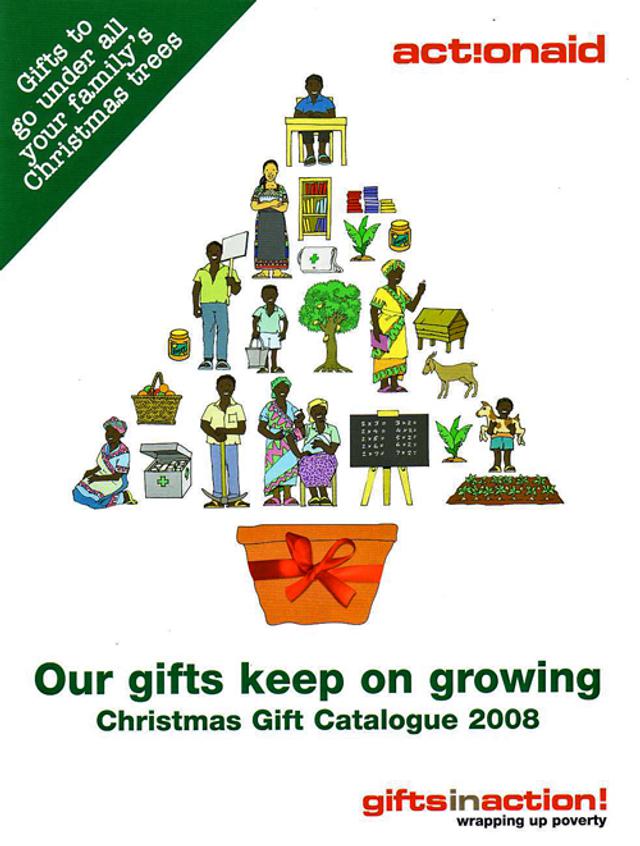 View original image
View original image
